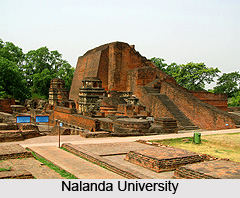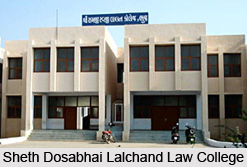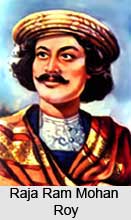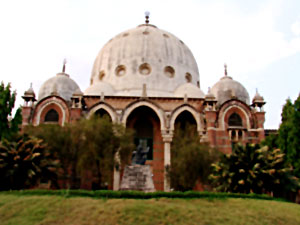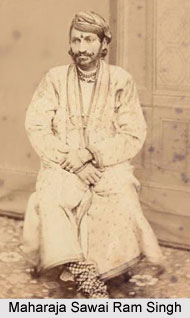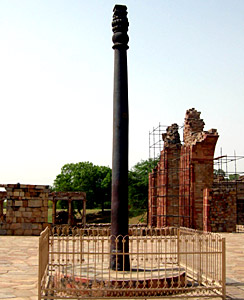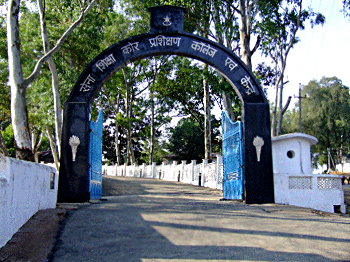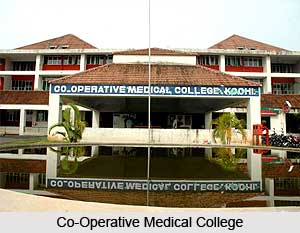 Situated in the district of Kochi in Kerala, the Co-Operative Medical College (CMC) is counted among the best medical institutions in the state. The college is being governed by the Co-operative Academy of Professional Education, which was established by the State Government of Kerala. The college follows the rules and regulations formulated by the State Government of Kerala, for its admissions and functioning. The institution is holding an excellent academic record since its inception and it is working with a view to achieve certain aims and objectives. The main vision of the college is to improve the standard of medical education in the state and also to produce quality doctors and provide standard health care to the public at an affordable rate. Apart from that, the college is also functioning with an objective of promoting medical research.
Situated in the district of Kochi in Kerala, the Co-Operative Medical College (CMC) is counted among the best medical institutions in the state. The college is being governed by the Co-operative Academy of Professional Education, which was established by the State Government of Kerala. The college follows the rules and regulations formulated by the State Government of Kerala, for its admissions and functioning. The institution is holding an excellent academic record since its inception and it is working with a view to achieve certain aims and objectives. The main vision of the college is to improve the standard of medical education in the state and also to produce quality doctors and provide standard health care to the public at an affordable rate. Apart from that, the college is also functioning with an objective of promoting medical research.
The Co-Operative Medical College (CMC), Kochi offers several courses in different disciplines of medical science at both the undergraduate and postgraduate levels. The college mainly offers the Bachelor of Medicine and Bachelor of Surgery (MBBS) Course at the undergraduate level. The course is a 4 1/2 year course followed by 1 year internship and the college admits a total of 100 students in the course, every year. The candidates are required to have passed the 10+2 (Intermediate) examination to be considered as eligible for admission in the MBBS Course.
Apart from the undergraduate course of MBBS, the Co-Operative Medical College (CMC), Kochi also offers the Diploma in General Nursing and Midwifery Course. This is a 3 and 1/2 year course followed by 1 year internship and the college admits 20 students in the course, every year. The candidates, who have cleared the 12th class (Intermediate) examination, are considered to be eligible for admission in this course. Both the Kerala Nurses and Midwives Council (KNMC) and Indian Nursing Council (INC) have recognised the Course. The college fills up 85% of the MBBS seats from the State Entrance examinations rank list and the rest of the 15% MBBS seats are reserved for Non Resident Indian students. Any citizen of India can get admitted in the college.
The Co-Operative Medical College (CMC), Kochi has a large number of departments that are working relentlessly to help the administration in providing quality education to the students. The departments can be classified as Preclinical, Para clinical, Specialities and Super Specialities. The Preclinical departments of the college include Anatomy, Physiology and Biochemistry; and the Para clinical departments are Pathology, Microbiology, Pharmacology, Forensic Medicine, and Community Medicine. The major Specialities departments include the department of Dentistry, Psychiatry, Dermatology, Orthopaedics, Ophthalmology, Radio-Diagnosis, Physiotherapy, Anaesthesiology, General Surgery, General Medicine, Respiratory Medicine, Oto-Rhino-Laryngology, Obstetrics & Gynaecology, and Paediatrics & Neonatology. There are also some Super Specialities departments in the college like Urology, Neurology, Cardiology, and Paediatric Surgery.
There is also a hospital situated adjacent to the Co-Operative Medical College (CMC), Kochi and the hospital is associated with the college, as a teaching hospital. The hospital has all the necessary sophisticated facilities of world class standards that provide treatment for all most all medical conditions with renowned Doctors specialized in all major Disciplines. The hospital also offers some low cost packages for all treatments. The hospital helps the college in training medical interns and is has also provided complete access for the students, to all its clinical and super specialty departments. Out of the 700 beds in this hospital, 500 are in the general category and these beds meet the requirements stipulated by the Medical Council of India (MCI) for the teaching departments.
